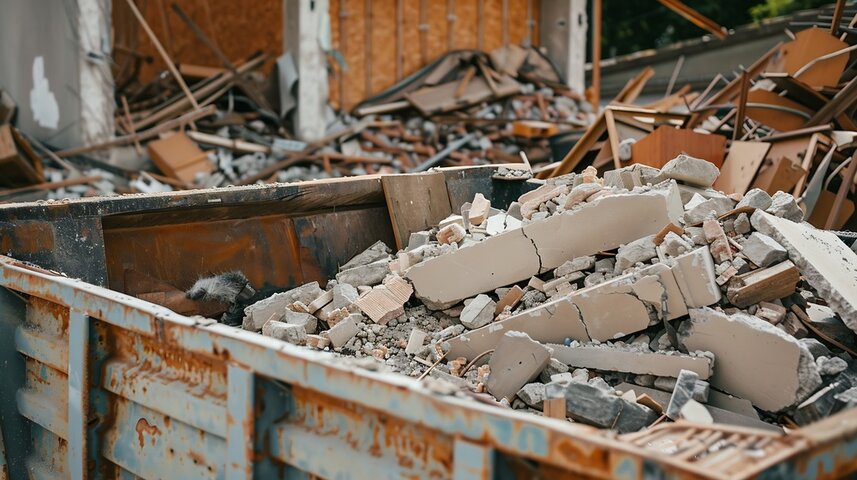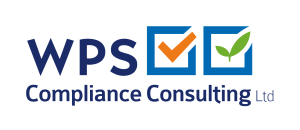How is Waste Managed on a Construction Site?

Waste production on a construction site is unavoidable, reduction strategies as well as management techniques are fundamental for waste management. The waste on-site is produced through various works such as demolition, construction and renovation, that generate various types of waste, including non-hazardous and hazardous waste. Hazardous waste contains substances that are harmful to the environment […]
Are Site Waste Management Plans Still Required?

Site Waste Management Plan (SWMP) A Site Waste Management Plan (SWMP) is used to plan, implement, monitor and review waste minimization and management in construction and demolition sites. SWMP helps to describe the procedures by which wastes will be handled and lists the methods needed to minimize waste, responsibly manage produced waste, measure quantities and […]
The Role of Pre-Demolition Audits in the Circular Economy

Paving the Way for Sustainable Construction In an era defined by climate responsibility and resource scarcity, the construction industry is undergoing a critical shift—from a linear “take-make-dispose” model to a more sustainable, circular economy approach. At WPS Compliance Consulting, we believe that one of the most effective ways to enable this transformation is through Pre-Demolition […]
Successful Pre-Demolition Audits in the UK

Real-world insights from WPS Compliance Consulting At WPS Compliance Consulting, we know that good planning lays the groundwork for successful, sustainable demolition, refurbishment and redevelopment. Our Pre-Demolition Audits (PDAs) not only help clients comply with environmental regulations, but also uncover tangible opportunities for cost savings, resource recovery, and carbon reduction. In this blog, we share […]
BREEAM UK New Construction: Residential – Elevating Sustainability Standards

On April 16, 2025, the Building Research Establishment (BRE) launched BREEAM UK New Construction: Residential V6.1, replacing the Home Quality Mark (HQM). This update aligns residential sustainability assessments with BREEAM’s globally recognized standards. Highlights of BREEAM UK New Construction: Residential V6.1 Whole-Life Performance Approach: Assessing environmental, social, and economic sustainability from design through operation. Enhanced […]
Construction Products Reform Green Paper: What It Means for UK Developers

The UK government has released the Construction Products Reform Green Paper, initiating a 12-week consultation aimed at overhauling the construction products regulatory framework. This move responds to the Grenfell Tower tragedy and subsequent inquiries, highlighting the need for enhanced safety and accountability in the construction sector. Key Proposals Single Construction Regulator: Establishment of a centralized […]
A Step-by-Step Guide to Conducting a Pre-Demolition Audit

As the construction industry places increasing emphasis on sustainability, environmental compliance, and cost efficiency, Pre-Demolition Audits have become a vital part of responsible demolition planning. These audits help identify recoverable materials, reduce waste, prevent environmental harm, and support the circular economy — all before the first wall comes down. Here’s a step-by-step guide on what […]
Top Materials Recovered During Pre-Demolition Audits

Pre-demolition audits are an essential part of sustainable construction and demolition strategies. These assessments identify which materials within a building can be safely and efficiently recovered, recycled, or reused before demolition begins. In this blog, we break down the top materials commonly salvaged during pre-demolition audits, how they’re reused, and why it pays — financially […]
How to Choose the Right Pre-Demolition Audit Service

Pre-demolition audits are no longer just a best practice — they’re essential for ensuring environmental compliance, minimizing waste, and unlocking hidden cost savings during redevelopment projects. But not all audit providers are created equal. Whether you’re preparing for a major urban redevelopment or a small-scale demolition, selecting the right pre-demolition audit service can mean the […]
Key Regulations and Standards for Pre-Demolition Audits in the UK

As the construction industry shifts toward more sustainable practices, pre-demolition audits have become a critical step in reducing waste, recovering valuable materials, and ensuring compliance with UK environmental laws. These audits not only support the circular economy but also help construction firms avoid regulatory pitfalls and unlock new efficiencies. In this blog, we’ll explore the […]
